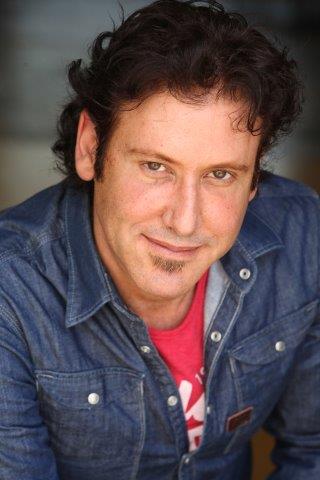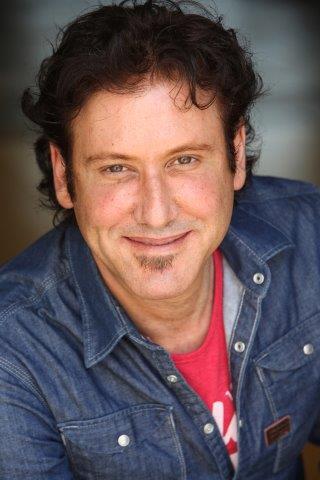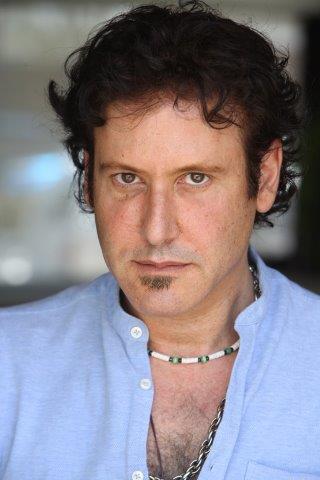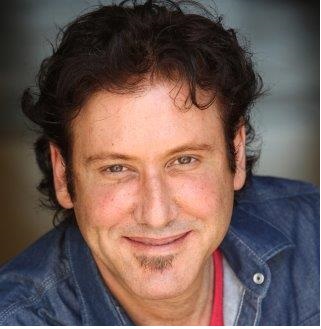Brendon Spiro- People You Should Know
People You Should Know — By Buddy Sampson on September 26, 2019 at 11:55 pmFrom Apartheid to Success
By Buddy Sampson
Brendon Spiro, born in Capetown, South Africa is an actor, producer and playwright that grew up with the backdrop of a nation torn by the turmoil of apartheid. With a keen eye for his craft, he knew his career path from the tender age of seven. “That’s when I decided to be an actor,” said Brendon Spiro. Ultimately, he studied acting in South Africa at the University of Capetown. However, he experienced first-hand, the laws of his country, a separation that would define the metaphors of his art- a division- a system of apartheid, a forced separation from like-minded artistic individuals that happened to have a different skin color than he.
“Growing up as a teenager, I became aware of apartheid at the age of fifteen and I wanted no parts of it. I wanted to be a part of an anti-apartheid system, but we grew up under heavy censorship,” said Brendon. For example, Nelson Mandela’s photograph was banned and blacked out in any article printed about him. Brendon was fortunate enough to be in the great crowd of energy and optimism in front of Cape Town City hall where Nelson Mandela gave his first speech on his vision for a rainbow nation future South Africa on the first day of his release from 27 years in prison. Prior to this, Mandela was labeled as a terrorist and his writing and speech were also considered illegal to print or possess.
However, Brendon, even as a youngster realized that there was something wrong, something amiss with the system of government in which he was raised. He wanted to be part of a movement, a movement for change. “I became involved with “The Theater of the Struggle,” Brendon reflected on one of his motivations for being in theater, “because theater was the last place that the government could really censor playwrights and artists that were talking about what was really going on in the country.” One of the most famous examples is “Sizwe Bansi is Dead,” a play by Athol Fugard, written collaboratively with two South African actors, John Kani and Winston Ntshona.
In the U.K Brendon was featured in such productions as “Holby City,” a BBC hospital drama, and “Not Ghostbusters: The Director’s Cut,” playing Dan Aykroyd’s part. The talented actor and playwright is beginning to capture the attention of Hollywood, studying under the tutelage of Shakespearian actor Paul Gregory.
In many societies, art has an uncanny way of reflection- of reflecting the ills of the society that they represent. In South Africa, many of the playwrights of that region were vocal in their responsibility to use their art to give meaning to their societal ills. “I was drawn into the kind of dynamism that the artistic community was aware of- they were aware that there was either going to be a civil war or that the power of the country had to be changed- to convert the country into a democracy,” said Brendon. The artistic community in South Africa stood up to injustice. Many of the productions of that time were very vocal in bringing awareness to system of apartheid. “The theater wanted to make people aware of it,” he explained, “we had one State Broadcaster-all of the radio was controlled, all the TV was controlled, and all the press was controlled. If you had a book in your house about communism, you would be thrown in jail. It was a totalitarian regime there.”
Theater was used as a focal point for dissent. “Theater was the only place that wasn’t as racially segregated and where stories about the lives of Black people and the lives of others under this apartheid system were told. “There was a big movement in theater for that kind of social change,” he said. However, bringing attention to societal ills came with an unfortunate cost- many productions were shut down because the system of apartheid and governmental agencies jailed producers of such productions who were courageous enough to know that somehow, they had to fix a system designed for unfairness- a system that made theater and art at times illegal. Many of the productions were shut down simply because they attracted mixed-race audiences, which, at the time, was illegal in South Africa.
While in his twenties, Brendon Spiro and a group of actors and producers ran a theater called the BlackSun Theater in Johannesburg, South Africa. “It was one of the longest running theaters in South Africa,” he said. Eventually, Brendon studied at the prestigious Royal Academy of Dramatic Art in London, studying Shakespeare.

Brendon Spiro. Currently, Brendon Spiro is doing a web series, “Beneath the Surface,” a show that explores forces and hidden forces that are orchestrating our world.
Brendon Spiro has been featured in several TV and film projects. Among them are “Holby City,” A BBC hospital drama, “The Journey’s End,” “Once Upon a Tale,” “Sisterhood,” with Cyril Cork (Hart Films), “Not Ghostbusters: The Director’s Cut,” and “Thousand Arrows,” among several others. Additionally, Spiro has been a staple of radio, theater and commercials and his work included Shakespearian plays such as Richard III, and classic theater plays such as “Camelot.”
As a kid in Capetown, South Africa, Brendon was, well different than most of his classmates. “I was a part of a movement called (PUPA -Pupils Unite for Peace and Awareness and then IDASA, The Independent Democratic Alternative for South Africa), working towards democracy, while in secret members where assisting with the “armed resistance struggle,”. “They even organized tours to Cuba in the 1980’s.”Currently, Brendon Spiro is doing a web series, “Beneath the Surface,” a show that explores forces and hidden forces that are orchestrating our world. Additionally, he is working with Old Vic Films on a feature film and TV series, “Operation Burma,” and another TV series, “Project Kenya” and has been cast as a lead in ED Heede’s Episodic Media series , “The Lord of Arrows.”
Brendon Spiro is a playwright and producer that has been involved with social change through his choice of profession, acting. Social change isn’t easy, however those that pursue social change, changing the course of history through their art are special and courageous. They are courageous because they boldly attempt to shape the course of a society in persisting to help the human condition. They are special because they care about the future of our society. It is one of many reasons why Brandon Spiro is one of the People You Should Know.”





 Tweet This
Tweet This Digg This
Digg This Save to delicious
Save to delicious Stumble it
Stumble it




